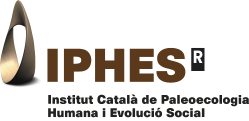NewsNext Previous
Open the pre-enrollment for the Erasmus Mundus Master’s degree in Quaternary Archaeology and Human Evolution
There are many students who after obtaining the title have found work in their countries.
The link with the IPHES allows the students to learn from the best team that investigate human evolution and acquire knowledge of the best techniques
In the master there are students from countries as diverse as Algeria, India, Thailand, Morocco, Ethiopia, Eritrea, China, Chile, Georgia and Mexico
Until next July 15th, the pre-enrollment for the 2021-22 course of the Erasmus Mundus Master’s degree in Quaternary Archaeology and human Evolution, taught at the Rovira i Virgili University of Tarragona (URV) is open. In this master participates researchers of the Institute of Human Paleoecology and Social Evolution (IPHES).
This master’s degree is taught from the 2004-2005 academic year, in partnership with other European institutions: Università degli Studi di Ferrara (Italy), Muséum National d’Histoire Naturelle (Paris, France), and the Tomar Polytechnic Institute.

Since the start of the course, at the URV every year, more than fifteen new students from all the regions of Spain and from many other places in the world, including Italy, Portugal, Algeria, India, Thailand, Morocco, Ethiopia, Eritrea, China, Indonesia, Armenia, Chile, Argentina, Georgia and Mexico. At the same time, teachers from places like Argentina, Chile, Georgia, Israel, Morocco and Mexico have come to Tarragona to teach their expertise, and experts from the URV and IPHES have traveled for educational purposes to these places. In these years, more than one hundred students have obtained the master’s degree after presenting their final research work and after performing a mobility period in another center of the Erasmus Mundus consortium. We always look for resources to make this possible.

Carlos Lorenzo, professor of the URV and coordinator of the Teaching Area of IPHES, declared: “All these reasons makes the master’s degree very attractive because, in addition, there are many who after obtaining the degree they have found work in the countries where they come from”. The archaeologist himself emphasize, “The link with the IPHES allows students to learn from the best teams that investigate human evolution in different European centers. Our consortium is a great school that allows them to learn the best techniques. “In this sense, Carlos Lorenzo pointed out that the aforementioned institutions are the hard core of this consortium, but there are other collaborations with others institutions from Germany, England, different parts of Spain, etc.
The attractiveness
The research projects that are currently being developed in Eurasia, by the IPHES, such as Atapuerca and Orce in Spain, or Dmanisi in Georgia are some of the attractiveness to students. They foresee the possibility to work in key sites to develop a research about important issues in the study of human evolution, such as the different aspects that explain the first dispersions, the routes followed, the species that carried them out, etc.


